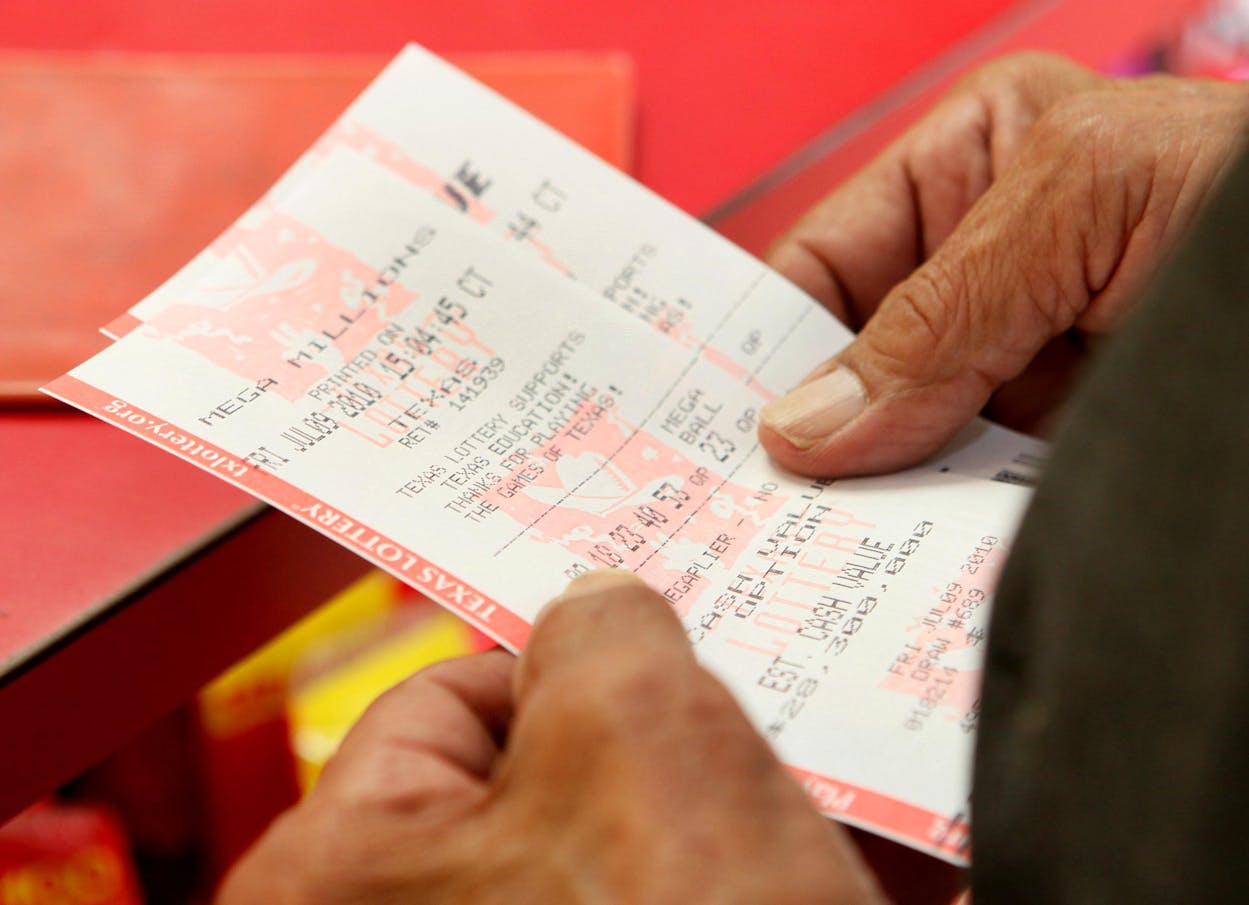Whole Lotto Confusion
State lawmakers this week voted to kill the Texas lottery—only to revive it just hours later. On Tuesday morning the House unexpectedly skewed 65-81 against a routine bill to allow the Texas Lottery Commission to continue operating, after several representatives argued the lottery is “a tax on the poor.” But later that afternoon, House members reconvened and called for another vote, this time approving the measure 91-53, keeping the agency open for at least another decade, the Austin American-Statesman reports.
The Bottom Line: The lottery generates about $2.2 billion for the state’s public education budget every two years, which probably would have been jeopardized if the initial vote had held up. Rejecting the bill also would have outlawed charitable bingo games, which bring in $26 million for Texas charities each year, according to the measure’s sponsor, Rep. Rafael Anchia of Dallas.
Postage Due
Lance Armstrong’s doping scandal has rippled out to the U.S. Postal Service, which sponsored the disgraced cyclist’s teams to the tune of about $40 million—$17 million of that to Armstrong—from 1998 to 2004. The Justice Department is suing Armstrong for three times that amount under the False Claims Act, claiming “the use of prohibited drugs constitutes a breach of contract with the Postal Service,” CNN reports. Armstrong’s company Tailwind Sports is also named in the suit.
The Bottom Line: Despite admitting to using performance-enhancing drugs in January, Armstrong contends the USPS was “never the victim of fraud” and that it “benefited tremendously from its sponsorship of the cycling team.” There is some evidence that backs up that claim: According to the Associated Press, studies commissioned by the Postal Service found “the agency reaped at least $139 million in worldwide brand exposure in four years” as a result of the sponsorship.
A STAAR is Scorned
Continuing a bid to rein in the money and time spent on standardized testing at public schools statewide, Texas legislators are taking the fight all the way up to the publisher. According to the Texas Tribune, Pearson PLC has a five-year, $468 million contract to provide tests including various iterations of the STAAR exam through 2015, an arrangement that lawmakers unanimously approved in 2009. But Senate Education Chairman Dan Patrick said this week that testing companies have overstepped their bounds and have become too influential in education policy decisions: “Their mission is to create as many tests as they can and then grade them at as little cost as possible,” he said at a hearing Tuesday.
The Bottom Line: Patrick is pitching a bill that “would reduce the number of high-stakes tests” required for graduation, the Tribune reports. Other amendments approved this session will prevent testing industry lobbyists from serving on state advisory committees, in addition to imposing a cap on their political contributions.
Winners of the Week: H-E-B and Whataburger
Spicy ketchup fans rejoice: Whataburger announced this week that its beloved condiments will be stocked on H-E-B shelves statewide starting this summer, The Houston Chronicle reports. The burger chain’s spicy ketchup has developed a cult following since it debuted last year, spawning a Facebook page with nearly 20,000 fans and a successful public campaign to make it a permanent staple at every location. The two San Antonio companies got such a positive response from Tuesday’s announcement that they decided two days later to also make Whataburger ketchup and mustard available at all Central Market stores.
Loser of the Week: Dell
Dell shares took a slide this week in the wake of news that the private equity firm The Blackstone Group has dropped its bid to buy out the Round Rock–based computer maker. According to The New York Times, “Blackstone decided to withdraw after discovering that Dell’s business was deteriorating faster than it previously understood”—evidenced by a record fourteen-percent drop in PC sales in the first quarter of 2013.
Reuters reports the firm’s departure “eases the way” for founder Michael Dell and the equity group Silver Lake Partners to move forward with a $24.4 billion deal to go private for $13.65 a share. Investor Carl Icahn is also in the mix, having previously proposed a preliminary offer of $15 per share—an option that now “appears to be faltering,” according to The Wall Street Journal.






